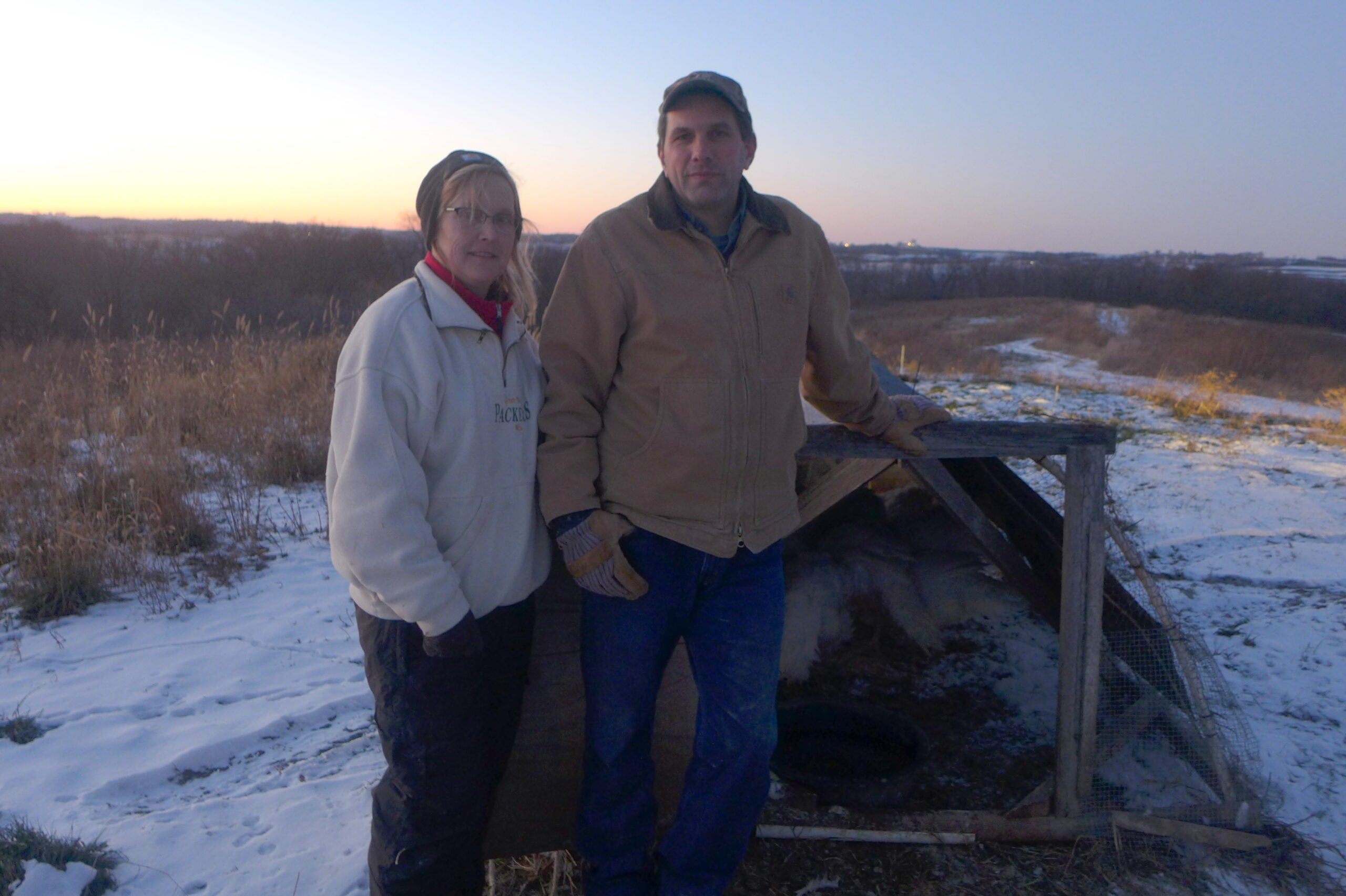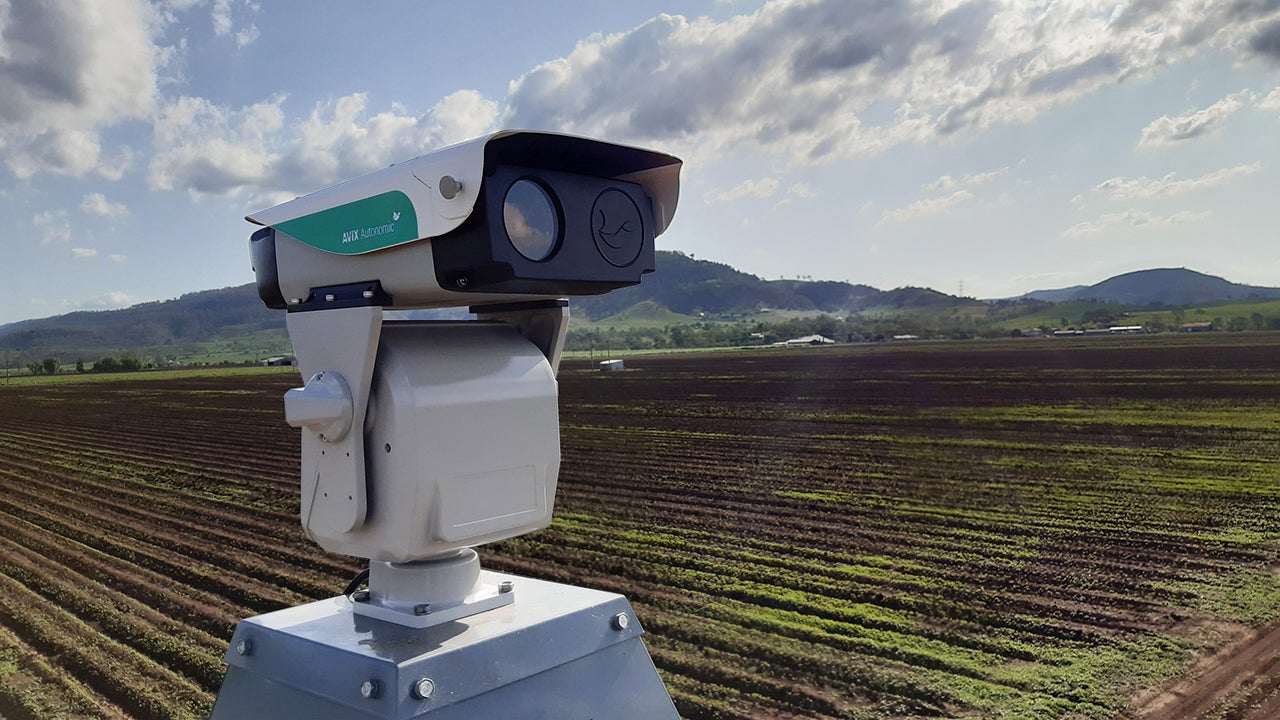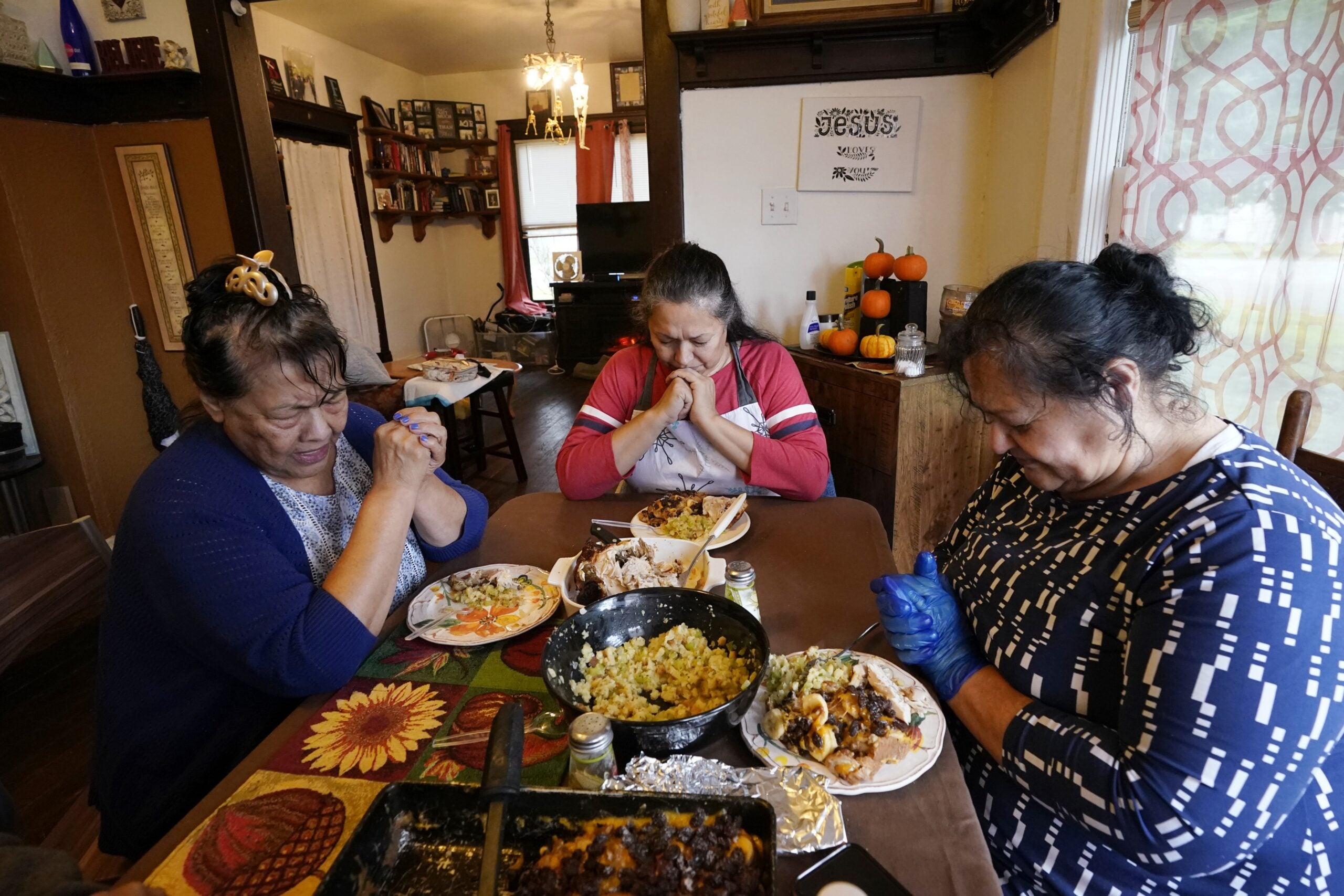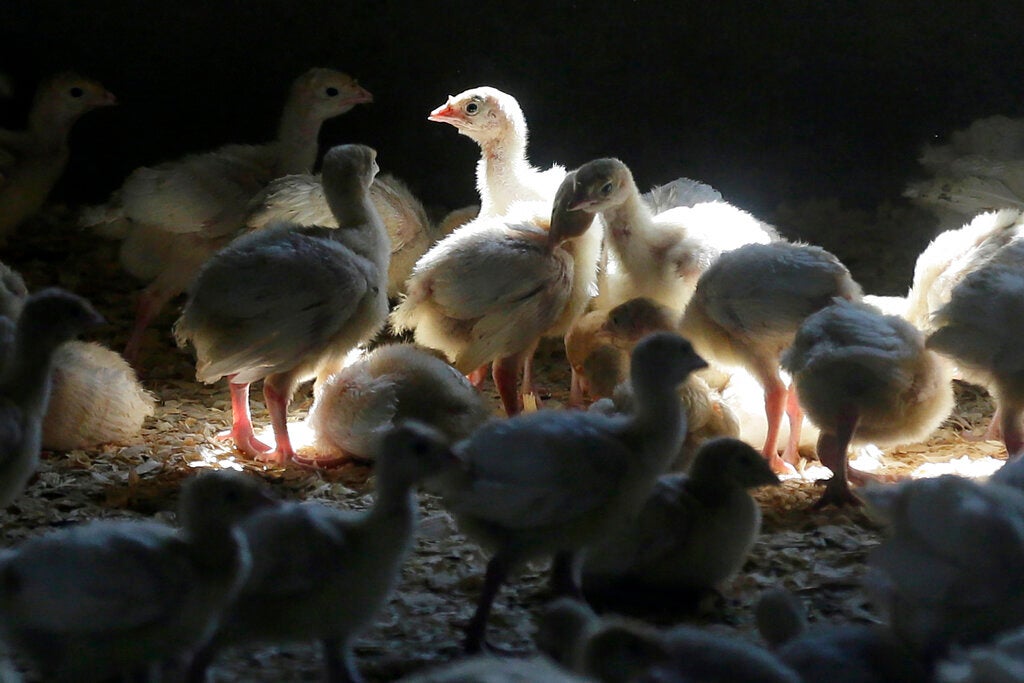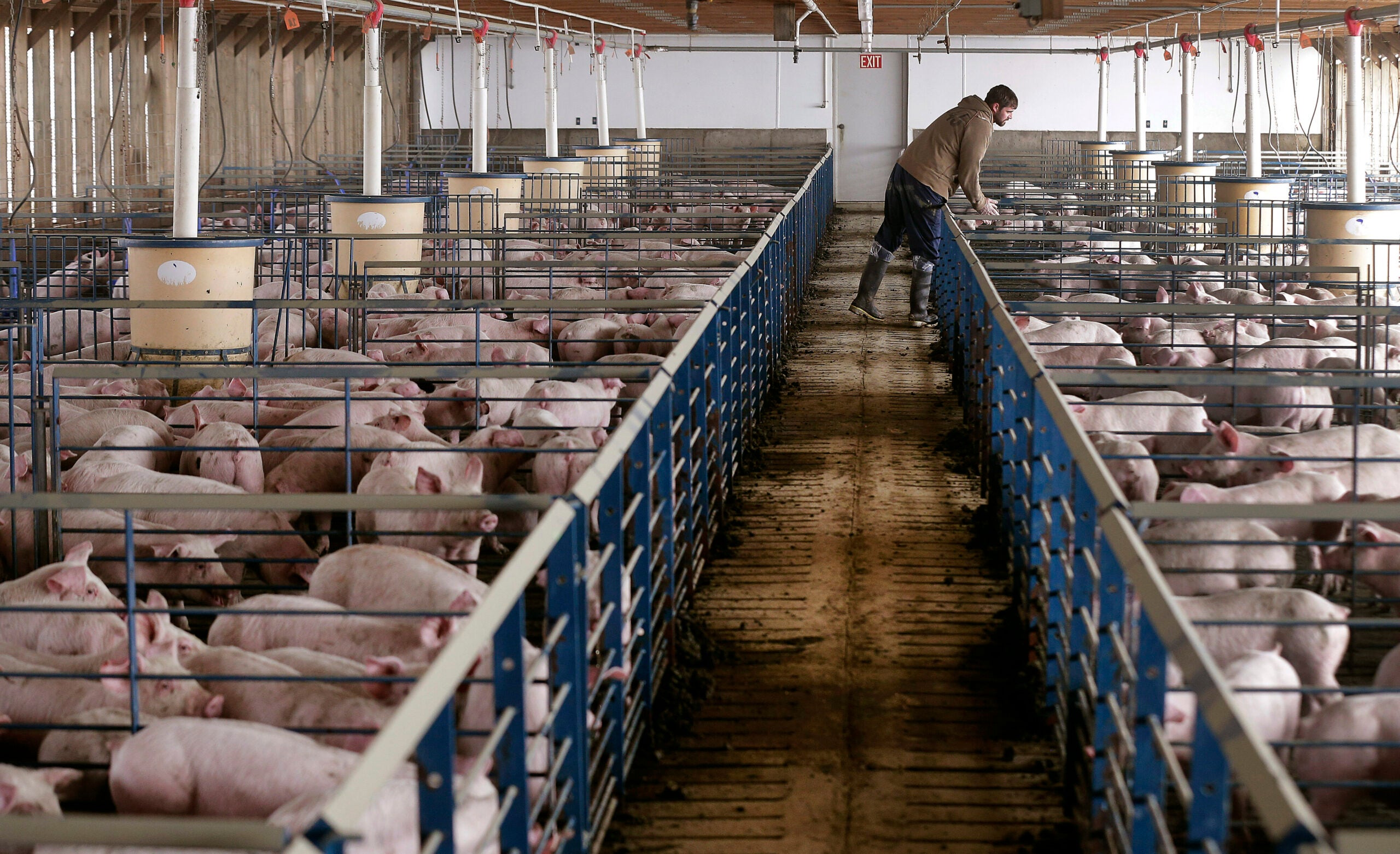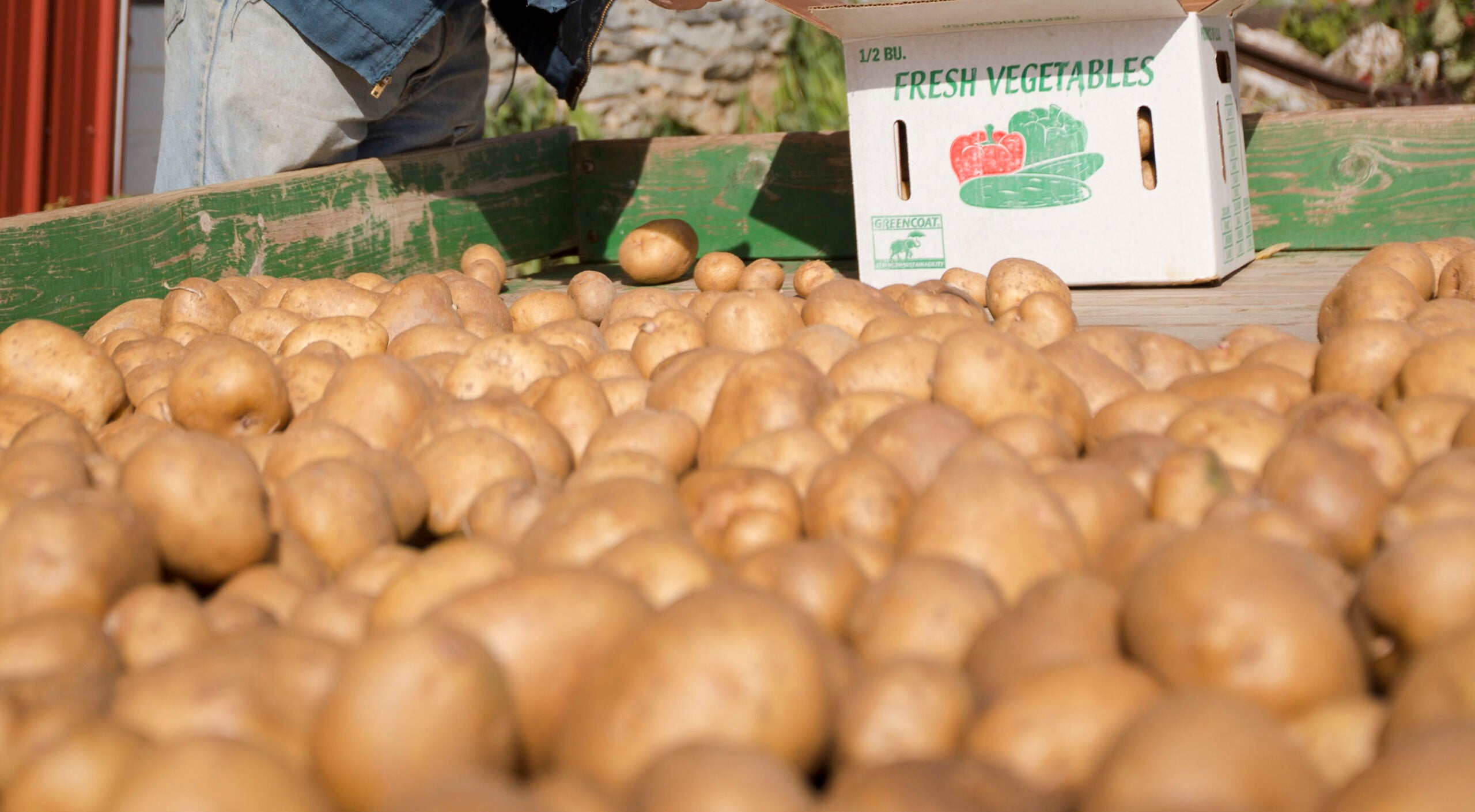For Dean Zimmerman, making rounds on his small, family farm in Wauzeka usually means filling the water bowls for the pigs and chickens. This time of the year, he also has another kind of animal to tend to — a flock of 15 white turkeys.
When Zimmerman opens the protective pen where his turkeys are kept, he chirps and coos along with the birds. He and his family raise the turkeys outdoors.
“They are on pasture and they are eating grass and they’re adding that to their diet. And when it’s not frozen there are bugs out here and they’re adding that to their diet. So it makes them a lot better-tasting than a typical turkey,” said Zimmerman.
Stay informed on the latest news
Sign up for WPR’s email newsletter.
Wisconsin is the top cranberry grower in the country, but it does not rank quite as high when it comes to producing that other Thanksgiving Day staple, turkey. Nevertheless, farmers who do raise the birds, like Zimmerman, have carved out a niche market for themselves.
Zimmerman doesn’t give the turkeys hormones or antibiotics. That makes them cost about $4.75 per pound — a bit more than your average grocery store turkey.
“It’s more of a specialty item,” said Zimmerman. “So there’s a little more opportunity to mark them up a little bit. And you have to when you’re keeping them this long because they’re a lot longer on your farm than chickens.”
The Zimmerman’s turkeys eat a combination of feed and grass. Photo: Maureen McCollum/WPR News.
Zimmerman said that turkeys can be labor-intensive and not very profitable for farmers raising small flocks. For small producers, the best way to avoid a financial loss is getting people to pre-order their turkeys for the holidays.
In Richland Center, Lori Havens and her family are raising turkeys for the first time this fall at their farm. She said they’re learning a lot, but knowing ahead of time how many customers want a Thanksgiving turkey has been a huge savings for them.
“It takes some of our risk of either having a lot of turkeys that aren’t the right size for our customers in our freezer all winter, or not having enough and people are disappointed and they find someone else to meet their needs,” said Havens.
According to the 2012 USDA Census of Agriculture, 400 farms in Wisconsin reported selling turkeys. While most of those farms raised fewer than 2,000 turkeys and likely much smaller flocks, most of the 7.3 million turkeys sold by Wisconsin farmers came from huge operations.
“The largest numbers would be in northwest Wisconsin, up around Rice Lake and Barron,” said Ron Kean, a poultry specialist with UW-Extension. “Jennie-O Turkey Store has a large processing plant there, so there are a lot of growers are around that area.”
Minnesota-based Jennie-O Turkey Store is the second-largest turkey processor in the country, handling 1.25 billion pounds of live turkeys last year. The company declined to say how much passed through its one facility in Wisconsin.
According to the U.S. Department of Agriculture, turkey production is down nationally and Kean says Wisconsin generally follows those trends. He said one thing preventing the turkey industry from growing and becoming more profitable in Wisconsin is the lack of access to processing facilities.
“The processing plant becomes a real issue, because if you don’t have that, you have to process them at home and that becomes a lot of labor,” said Kean.
Dean Zimmerman doesn’t process his turkeys at home — rather, he takes them to a humane processing facility in Minnesota. He doesn’t expect to increase his flock by a lot in the future. He’s more than happy providing just enough turkeys to meet the demand from people in area who want something a little different for Thanksgiving.
Wisconsin Public Radio, © Copyright 2024, Board of Regents of the University of Wisconsin System and Wisconsin Educational Communications Board.

